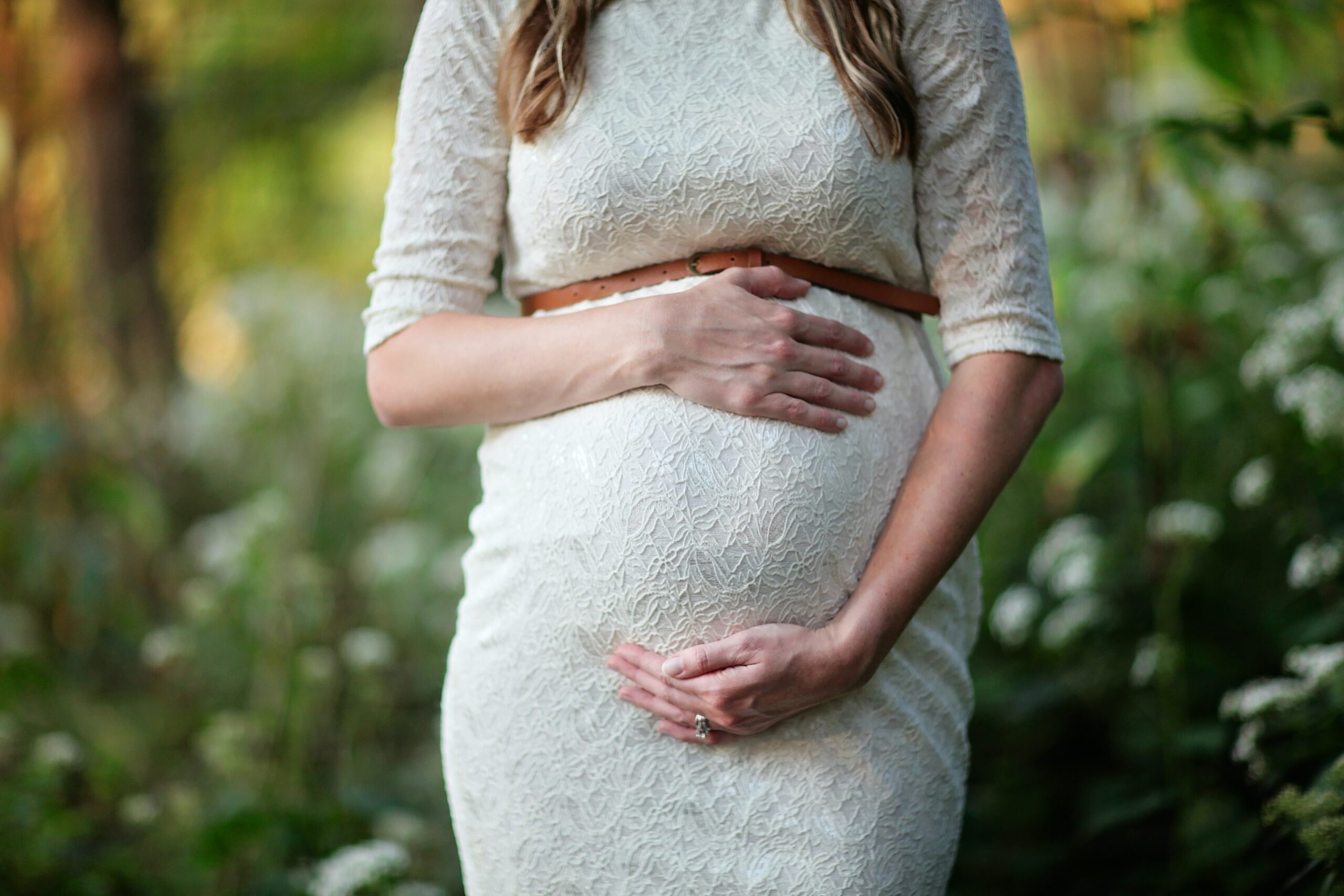Questions about COVID-19
We get lots of questions about COVID-19, its effects in pregnancy and on fertility, and whether or not to have the vaccine. Whilst the global COVID-19 pandemic is still evolving and there are many unknowns about the long-term effects of the virus not only on population dynamics but also on fertility and pregnancy, we know enough to be able to offer evidence-based guidance.
What is COVID-19?
As a group, coronaviruses are common across the world. Typical symptoms of coronavirus include fever and a cough that may progress to a severe pneumonia causing shortness of breath and breathing difficulties. Novel coronavirus (SARS-COV 2) is the latest strain of coronavirus causing COVID-19, which can manifest as a very severe illness, especially but not exclusively, affecting older people or those with other health issues.
Is COVID-19- more serious if you are pregnant?
There is no doubt that pregnant women may also become very seriously unwell. A recent study of 2130 pregnant women in 18 countries showed that women with COVID-19 were at increased risk of pregnancy complications including intensive care admission, preterm birth, preeclampsia and high blood pressure. Therefore it is important now to try to become vaccinated before pregnancy and take steps to mitigate disease severity by ensuing that you are as healthy as possible by eating a healthy diet, exercising, reducing stress, getting good quality sleep, ensuring good oral and dental health and taking appropriate vitamin supplements (advice that’s applicable to all – see our earlier blog).

The large majority of women who get COVID-19 whilst pregnant, however, will experience only mild or moderate cold/flu like symptoms. To date, there is no evidence to suggest that the virus causes any serious harm to the developing baby, although there have been cases of transmission from a mother to her baby during pregnancy and birth. In the majority of cases of newborn babies developing coronavirus very soon after birth, the babies have been well but this will also depend upon their maturity. Some babies have been born prematurely to women who were very unwell with COVID-19. A high fever can lead to miscarriage and premature labour and also potentially to developmental anomalies very early in pregnancy (even before a pregnancy test is positive). There is no evidence to date, however, that COVID-19 itself has caused developmental anomalies.
Keeping yourself healthy
Although we do not know if specific foods, vitamins and minerals will be protective given the very recent emergence of the virus, early research suggests the potential importance of sufficiency of certain nutrients for avoiding serious illness with COVID-19, including vitamin D, selenium, iodine and vitamin K. One recent study investigated international dietary patterns in relation to risk from the virus found an association between lower COVID-19 mortality rates in countries where consumption of fermented foods was greatest. Other studies have concluded that the gut microbiota may be an important factor in risk from COVID-19. Although more research is needed to confirm some of these hypotheses and findings of early studies, maintaining good levels of all nutrients is a sensible approach that will have benefit to general health and fertility and will not cause harm.
COVID-19 and male fertility
The virus has been found in semen samples of men affected by COVID-19. There is some evidence to suggest that COVID-19 may persist in the testes, raising the possibility the virus may affect male fertility and could even be sexually transmitted. Not all studies, however, have found the virus in the semen of those who have been infected, refuting the possibility of sexual transmission. There have been early individual case reports of men who were infected with COVID-19 and subsequently died were found to have damage in the testes including to the seminiferous tubules where sperm is produced. Overall there is no hard evidence to date that the infection itself is either sexually transmitted or has caused infertility. Any debilitating illness or fever, however, may have an effect on male fertility for at least three months – which is the time that it takes to make sperm.
As a new virus, there is much that we do not know, including whether there will be lasting effects, but we do advise caution and taking all the necessary steps to avoid infection including washing hands, avoiding close contact with others and wearing gloves and masks where indicated.
COVID-19 Vaccines
Vaccines have been developed using different methods. One is using RNA, which produces COVID-19 antigens (proteins) once injected into the body. This in turn triggers an immune response to COVID-19. The main vaccines that use this technology are the Pfizer and Moderna Vaccines. The other type of vaccine is the adenovirus vaccines. Adenoviruses cause mild illness like the common cold. Adenovirus-based COVID vaccines use an inactive modified chimp adenovirus with the gene for the COVID-19 spike protein inserted so that, again, antibodies to COVID-19 are produced and immunity develops. The main vaccines that use adenoviruses are the Astra Zeneca and the Johnson & Johnson virus.

Vaccine misinformation
There continues to be a great deal of misinformation circulating online when it comes to COVID-19 vaccines. All drugs have side effects and toxicity profiles, and this is not something you take every day. Serious side-effects are rare, even when you take recent events in terms of blood clots with the AstraZeneca and Johnson and Johnson vaccines into account. It is beyond the scope of this blog to address all of the false claims that are circulating but suffice it to say that vaccines have saved millions of lives and their benefits outweigh any risks.
We are living in unprecedented circumstances and it is vital that everyone gets vaccinated. Remember what may not affect you now has the potential to affect you in the future in myriad ways if the virus continues to mutate or if infections get out of control. Stopping infections rising and mutations taking hold is key. This is the first time we’ve had a pandemic caused by an easily transmissible novel virus in the age of globalisation on a planet of 8 billion humans – that’s an awful lot of potential RNA replications (COVID-19 is an RNA virus), giving unprecedented opportunity for mutations, which have the potential to make the virus more deadly. There are numerous clinically relevant mutations arising all over the world and we do not know how things may change in the future. Keeping the virus under control is in all of our best interests.
Will the vaccine affect my fertility?
There is no evidence or known mechanism by which vaccines will impact male or female fertility. Rumours began circulating after a comment by one scientist that the vaccine may affect the placenta, but this has been firmly rebutted. There is ongoing research looking at what is known as reproductive toxicity, including animal studies, and no concerns whatsoever have arisen to date.
Should I get vaccinated if I am already pregnant?
The current advice in the UK is that it is safe to be vaccinated if you are planning a pregnancy and, more recently in the UK, if you are pregnant. None of the vaccines contain the live virus and so they appear to be safe if given during pregnancy, although there is limited data at the time of writing and studies are ongoing. However, thousands of women have now been vaccinated around the world in the third trimester of pregnancy and no safety concerns have arisen to date. Given the recent emergence of rare side effects (blood clots) with the adenovirus vaccines (Astra Zeneca and Johnson & Johnson), the UK Joint Committee on Vaccination and Immunisation (JCVI) has updated its advice so that pregnant women should now have one of the RNA vaccines (Pfizer and Moderna) until we have a better understanding of who may be at risk of these blood clots.
Fever is a potential side effect of the vaccine. The very early developing embryo is undergoing dramatic changes even before a pregnancy test is positive and a high fever may have an impact on organ development and even cause miscarriage. So perhaps the safest approach would be to receive the vaccine in the first ten days of the cycle, so that there is no chance of an early pregnancy. Or if you find yourself pregnant before being vaccinated, wait to be vaccinated until after 12weeks of pregnancy (usually 2 months after a positive pregnancy test).
What about blood clots?
Recent information has come to light to show that there is a small increased risk of blood clots with the adenovirus vaccines (Astra Zeneca and Johnson and Johnson). This is thought to be caused by an unusual immune response that causes the body to attack its own platelets (the small fragments in blood that cause blood to clot in response to injury). It is thought that antibodies bind to the platelets making them bigger and more likely to cause clots. At the time of writing, people who are already at increased risk of clots are not thought to be at higher risk as the causes are due to a rogue immune response not underlying conditions that make the blood more likely to clot. The current advice in the UK is therefore that those under 30 should not have the Astra Zeneca vaccine as younger people may have a stronger immune response to the vaccine and because the risk-benefit changes as younger people are at less risk of severe disease with COVID-19. Despite this lower risk, you are still at greater risk of blood clots from COVID-19 than from the vaccine, whichever vaccine you have.
These are our views and the situation is evolving the whole time. Please remember that this has all been written during a time when scientific and medical knowledge is changing rapidly. The most up to date information for the UK can be found on the websites of the The Royal College of Obstetricians and Gynaecologists (RCOG) and the British Fertility Society (BFS).
References
“Maternal and Neonatal Morbidity and Mortality Among Pregnant Women With and Without COVID-19 Infection”, JAMA Pediatr. 2021.1050 April 2021
“Covid-19: No evidence that vaccines can affect fertility, says new guidance”, BMJ 2021;372:n509, February 2021
“Are COVID-19 vaccines safe in pregnancy?”, Nature Reviews Immunology volume 21, pages 200–201 (2021)
“Towards Understanding ChAdOx1 nCov-19 Vaccine-induced Immune Thrombotic Thrombocytopenia (VITT)”, 10.21203/rs.3.rs-440461/v1
